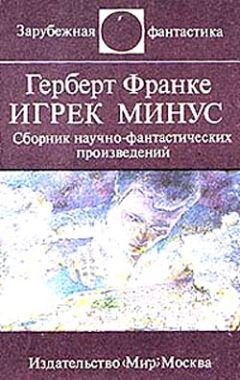Рэй Брэдбери - Тёмный карнавал (Dark Carnival), 1947
"Timothy," someone whisped behind a patterned wall, hissing and sizzling and sighing the words, "Timothy is afraid of the dark."
Leonard's voice. Hateful Leonard!
"I like the candle, that's all," said Timothy in a reproachful whisper.
More lightning, more thunder. Cascades of roaring laughter. Bangings and clickings and shouts and rustles of clothing. Clammy fog swept through the front door. Out of the fog, settling his wings, stalked a tall man.
"Uncle Einar!"
Timothy propelled himself on his thin legs, straight through the fog, under the green webbing shadows. He threw himself across Einar's arms. Einar lifted him.
"You've wings, Timothy!" He tossed the boy light as thistles. "Wings, Timothy: fly!" Faces wheeled under. Darkness rotated. The house blew away. Timothy felt breezelike. He flapped his arms. Einar's fingers caught and threw him once more to the ceiling. The ceiling rushed down like a charred wall. "Fly, Timothy!" shouted Einar, loud and deep. "Fly with wings! Wings!"
He felt an exquisite ecstasy in his shoulder blades, as if roots grew, burst to explode and blossom into new, moist membrane. He babbled wild stuff; again Einar hurled him high.
The autumn wind broke in a tide on the house, rain crashed down, shaking the beams, causing chandeliers to tilt their enraged candle lights. And the one hundred relatives peered out from every black, enchanted room, circling inward, all shapes and sizes, to where Einar balanced the child like a baton in the roaring spaces.
"Enough!" shouted Einar, at last.
Timothy, deposited on the floor timbers, exaltedly, exhaustedly fell against Uncle Einar, sobbing happily. "Uncle, uncle, uncle!"
"Was it good, flying? Eh, Timothy?" said Uncle Einar, bending down, patting Timothy's head. "Good, good."
It was coming toward dawn. Most had arrived and were ready to bed down for the daylight, sleep motionlessly with no sound until the following sunset, when they would shout out of their mahogany boxes for the revelry.
Uncle Einar, followed by dozens of others, moved toward the cellar. Mother directed them downward to the crowded row on row of highly polished boxes. Einar, his wings like sea-green tarpaulins tented behind him, moved with a curious whistling down the passageway, where his wings touched they made a sound of drumheads gently beaten.
Upstairs, Timothy lay wearily thinking, trying to like the darkness. There was so much you could do in darkness that people couldn't criticize you for, because they never saw you. He did like the night, but it was a qualified liking: sometimes there was so much night he cried out in rebellion.
In the cellar, mahogany doors sealed downward, drawn in by pale hands. In corners, certain relatives circled three times to lie, heads on paws, eyelids shut. The sun rose. There was a sleeping.
Sunset. The revel exploded like a bat nest struck full, shrieking out, fluttering, spreading. Box doors banged wide. Steps rushed up from cellar damp. More late guests, kicking on front and back portals, were admitted.
It rained, and sodden visitors laid their capes, their waterpelleted hats, their sprinkled veils upon Timothy who bore them to a closet. The rooms were crowd-packed. The laughter of one cousin, shot from one room, angled off the wall of another, ricocheted, banked and returned to Timothy's ears from a fourth room, accurate and cynical.
A mouse ran across the floor.
"I know you, Niece Liebersrouter!" exclaimed father around him but not to him. The dozens of towering people pressed in against him, elbowed him, ignored him.
Finally, he turned and slipped away up the stairs.
He called softly. "Cecy. Where are you now, Cecy?"
She waited a long while before answering. "In the Imperial Valley," she murmured faintly. "Beside the Salton Sea, near the mud pots and the steam and the quiet. I'm inside a farmer's wife. I'm sitting on a front porch. I can make her move if I want, or do anything or think anything. The sun's going down."
"What's it like, Cecy?"
"You can hear the mud pots hissing," she said, slowly, as if speaking in a church. "Little gray heads of steam push up the mud like bald men rising in the thick syrup, head first, out in the broiling channels. The gray heads rip like rubber fabric, collapse with noises like wet lips moving. And feathery plumes of steam escape from the ripped tissue. And there is a smell of deep sulphurous burning and old time. The dinosaur has been abroiling here ten million years."
"Is he done yet, Cecy?"
The mouse spiraled three women's feet and vanished into a corner. Moments later a beautiful woman rose up out of nothing and stood in the corner, smiling her white smile at them all.
Something huddled against the flooded pane of the kitchen window. It sighed and wept and tapped continually, pressed against the glass, but Timothy could make nothing of it, he saw nothing. In imagination he was outside staring in. The rain was on him, the wind at him, and the taper-dotted darkness inside was inviting. Waltzes were being danced; tall thin figures pirouetted to outlandish music. Stars of light flickered off lifted bottles; small clods of earth crumbled from casques, and a spider fell and went silently legging over the floor.
Timothy shivered. He was inside the house again. Mother was calling him to run here, run there, help, serve, out to the kitchen now, fetch this, retch that, bring the plates, heap the food – on and on – the party happened.
"Yes, he's done. Quite done." Cecy's calm sleeper's lips turned up. The languid words fell slowly from her shaping mouth. "Inside this woman's skull I am, looking out, watching the sea that does not move, and is so quiet it makes you afraid. I sit on the porch and wait for my husband to come home. Occasionally, a fish leaps, falls back, starlight edging it. The valley, the sea, the few cars, the wooden porch, my rocking chair, myself, the silence."
"What now, Cecy?"
"I'm getting up from my rocking chair," she said.
"Yes?"
"I'm walking off the porch, toward the mud pots. Planes fly over, like primordial birds. Then it is quiet, so quiet."
"How long will you stay inside her, Cecy?"
"Until I've listened and looked and felt enough: until I've changed her life some way. I'm walking off the porch and along the wooden boards. My feet knock on the planks, tiredly, slowly."
"And now?"
"Now the sulphur fumes are all around me. I stare at the bubbles as they break and smooth. A bird darts by my temple, shrieking. Suddenly I am in the bird and fly away! And as I fly, inside my new small glass-bead eyes I see a woman below me, on a boardwalk, take one, two, three steps forward into the mud pots. I hear a sound as of a boulder plunged into molten depths. I keep flying, circle back. I see a white hand, like a spider, wriggle and disappear into the gray lava pool. The lava seals over. Now I'm flying home, swift, swift, swift!"
Something clapped hard against the window. Timothy started.
Cecy flicked her eyes wide, bright, full, happy, exhilarated. "Now I'm home!" she said.
After a pause, Timothy ventured, "The Homecoming's on. And everybody's here."
"Then why are you upstairs?" She took his hand. "Well, ask me." She smiled slyly. "Ask me what you came to ask."
"I didn't come to ask anything," he said. "Well, almost nothing. Well – oh, Cecy!" It came from him in one long rapid flow. "I want to do something at the party to make them look at me, something to make me good as them, something to make me belong, but there's nothing I can do and I feel funny and, well, I thought you might…"
"I might," she said, closing her eyes, smiling inwardly. "Stand up straight. Stand very still." He obeyed. "Now, shut your eyes and blank out your thought."
He stood very straight and thought of nothing, or at least thought of thinking nothing.
She sighed. "Shall we go downstairs now, Timothy?" Like a hand into a glove, Cecy was within him.
"Look everybody!" Timothy held the glass of warm red liquid. He held up the glass so that the whole house turned to watch him. Aunts, uncles, cousins, brothers, sisters!
He drank it straight down.
He jerked a hand at his sister Laura. He held her gaze, whispering to her in a subtle voice that kept her silent, frozen. He felt tall as the trees as he walked to her. The party now slowed. It waited on all sides of him, watching. From all the room doors the faces peered. They were not laughing. Mother's face was astonished. Dad looked bewildered, but pleased and getting prouder every instant.
He nipped Laura, gently, over the neck vein. The candle flames swayed drunkenly. The wind climbed around on the roof outside. The relatives stared from all the doors. He popped toadstools into his mouth, swallowed, then beat his arms against his flanks and circled. "Look, Uncle Einar! I can fly, at last!" Beat went his hands. Up and down pumped his feet. The faces flashed past him.
At the top of the stairs flapping, he heard his mother cry, "Stop, Timothy!" far below. "Hey!" shouted Timothy, and leaped off the top of the well, thrashing.
Halfway down, the wings he thought he owned dissolved. He screamed. Uncle Einar caught him.
Timothy flailed whitely in the receiving arms. A voice burst out of his lips, unbidden. "This is Cecy! This is Cecy! Come see me, all of you, upstairs, first room on the left!" Followed by a long trill of high laughter Timothy tried to cut it off with his tongue.
Everybody was laughing. Einar set him down. Running through the crowding blackness as the relatives flowed upstairs toward Cecy's room to congratulate her, Timothy banged the front door open.
"Cecy, I hate you, I hate you!"
By the sycamore tree, in deep shadow, Timothy spewed out his dinner, sobbed bitterly and threshed in a pile of autumn leaves. Then he lay still. From his blouse pocket, from the protection of the matchbox he used for his retreat, the spider crawled forth. Spid walked along Timothy's arm. Spid explored up his neck to his ear and climbed in the ear to tickle it. Timothy shook his head. "Don't, Spid. Don't."
The feathery touch of a tentative feeler probing his eardrum set Timothy shivering. "Don't Spid!" He sobbed somewhat less.
The spider traveled down his cheek, took a station under the boy's nose, looked up into the nostrils as if to seek the brain, and then clambered softly up over the rim of the nose to sit, to squat there peering at Timothy with green gem eyes until Timothy filled with ridiculous laughter. "Go away, Spid!"
Timothy sat up, rustling the leaves. The land was very bright with the moon. In the house he could hear the faint ribaldry as Mirror, Mirror was played. Celebrants shouted dimly muffled, as they tried to identify those of themselves whose reflections did not, had not ever appeared in a glass.
"Timothy." Uncle Einar's wings spread and twitched and came in with a sound like kettledrums. Timothy felt himself plucked up like a thimble and set upon Einar's shoulder. "Don't feel badly? Nephew Timothy. Each to his own, each in his own way. How much better things are for you. How rich. The world's dead for us. We've seen so much of it, believe me. Life's best to those who live the least of it. It's worth more per ounce, Timothy, remember that."
The rest of the black morning, from midnight on. Uncle Einar led him about the house, from room to room, weaving and singing. A horde of late arrivals set the entire hilarity off afresh. Great-great-great-great and a thousand more great-greats Grandmother was there, wrapped in Egyptian cerements. She said not a word, but lay straight as a burnt ironing board against the wall, her eye hollows cupping a distant, wise, silent glimmering. At the breakfast, at four in the morning, one-thousand-odd-greats Grandmama was stiffly seated at the head of the longest table.



